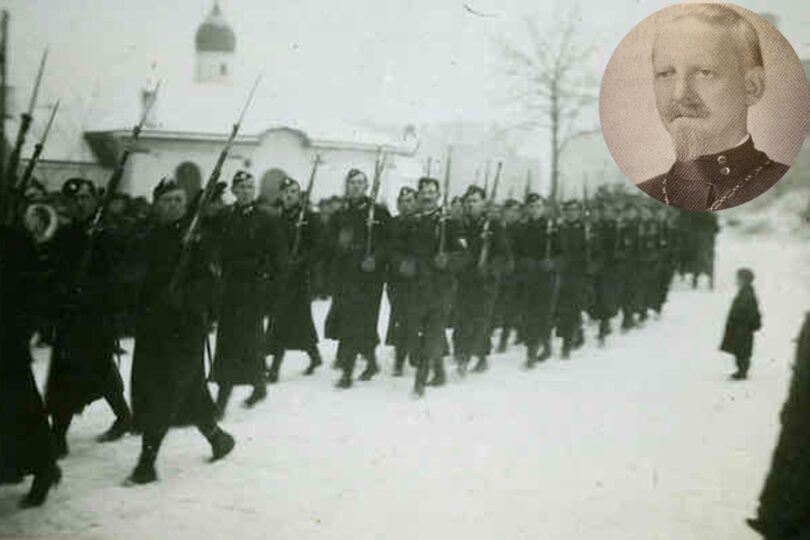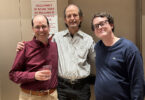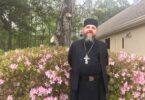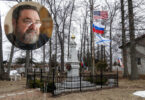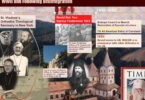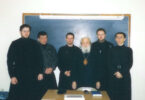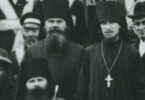One of the few countries that arguably stood to gain something out of World War I was the newly founded Kingdom of Serbs, Croats, and Slovenians. This country needed “new blood” and welcomed the White Russian refugees who brought in their education and expertise. This was also a gesture of appreciation for Russia’s stepping up for Serbia at the outset of the war in 1914. In August of 1921, the Council of the Serbian Orthodox Church decided to provide canonical asylum to the Russian refuge bishops, thereby permitting them to remain within the Church of Russia. At the same time, all Russian clergy who arrived in Serbia (save for the Russian church in Belgrade) were to be subject to the Serbian bishops.
In April of 1941, Nazi Germany occupied Yugoslavia. The intensive guerilla warfare and creation of Croatian state affected the Russian refugees from Bolshevism, many of whom fell victims to various armed groups. Among them were several Russian priests, including Fr. Joseph Bragin, who ministered to the Serbian flock in the town of Homolje in Braničevo diocese. In September of the same year of 1942, the Serbian Bishop Benjamin wrote to Metropolitan Anastasii, the ROCOR First Hierarch (then in Belgrade), confirming that three Serbian and five Russian priests had been killed in his diocese of Braničevo.
To protect the Russian diaspora and participate in “the continuation of the civil war,” Russian military emigres in Serbia founded in 1941 the Russian Protective Corps (Russisches Schutzkorps Serbien). It was a unit of the Wehrmacht that patrolled factories and fought against the partisans.
From 1942, Fr. Boris Molchanoff served as a chaplain to the 3rd regiment of the Russian Corps. During services, the clergy commemorated the Serbian Patriarch Gavrilo, whom the Nazis arrested along with, nominally, King Peter (who had escaped to London). At that time, the Corps began fighting against communist and monarchist partisans and later Soviet and Bulgarian troops. They never committed war crimes against civilians, often defending the Russians and Serbs from the atrocities of the Croatian fascists. During the Russian Civil War, the future Fr. Boris had served in the North-Western Army of General Iudenich. This experience helped him to stay close to his flock on the battlefield. Fr. Boris grew up in a priest’s family in Petrograd. He graduated from seminary there and, in 1928, from St. Serge Theological Institute in Paris. In 1932, he brought his parish of the Resurrection of the Lord in the Paris suburb Meudon from the Exarchate of Metropolitan Evlogii over to the ROCOR, where it has since remained. Fr. Boris is a representative type of the first generation of ROCOR priests, having served in France, England, Lebanon, Serbia, Austria, and the US, where he died. Fr. Boris is known for his exegesis of the Book of Revelation. Understandably, his views did not steer clear of a conspiracy-theory angle.
Sources:
Mikhail Shkarovskii, “Voennoe dukhovenstvo Russkogo korpusa v Iugoslavii v 1941-1945 gg.” [The Military Clergy of the Russian Corps in Yugoslavia in 1941-1945]. The Website of St. Petersburg Theological Academy.
Idem. “Russkaia tserkovnaia emigratsiia v Iugoslavii v gody vtoroi mirovoi voiny” [The Russian church immigration to Yugolsavia during World War Two]. The Website of St. Petersburg Theological Academy.
Christopher Birchall, Embassy, Emigrants, Englishmen: The Three Hundred Year History of a Russian Orthodox Church in London, Jordanville, NY 2014.
Antonine Niviere, Pravoslavnye sviashchenosluzhiteli, bogoslovy i tserkovnye deiateli russkoi emigratsii v Zapadnoi i Tsentral’noi Evrope 1920-1965. [Orthodox clergy, theologians and church activists of the Russian emigration in Western and Central Europe]Moscow 2007.
Aleksej Timofejev, Nestajn’e ruske emigratsije u Jugoslaviji: 1941-1954, Belgrade, 2022

